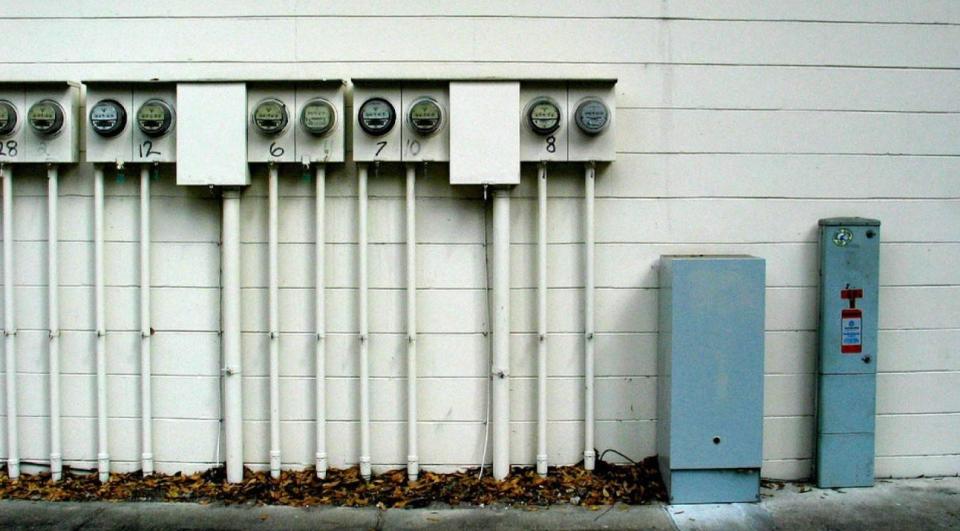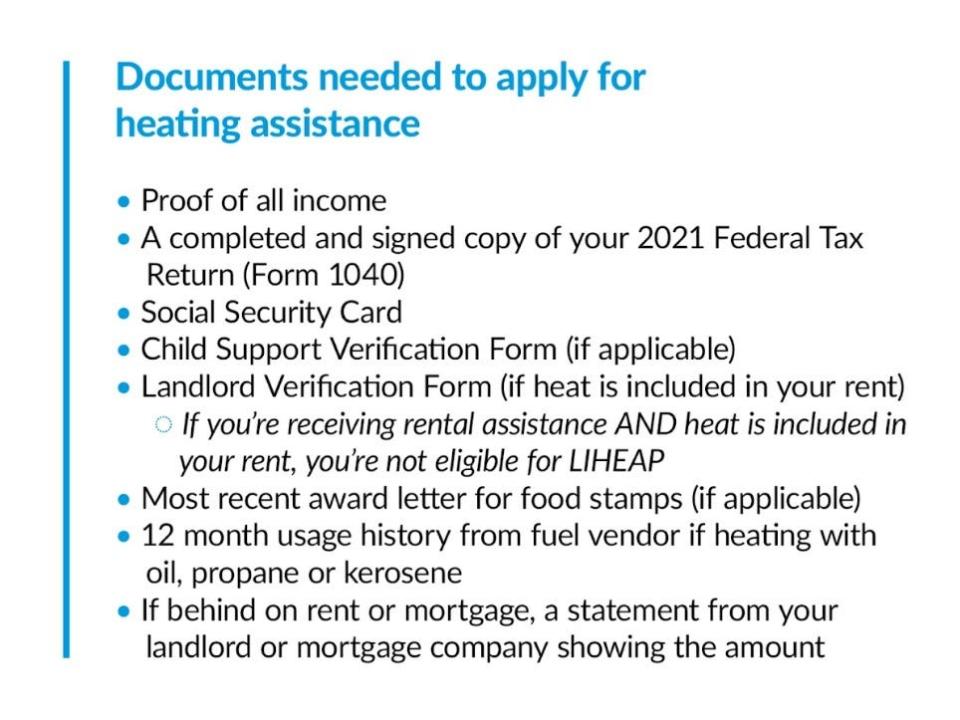Cold weather is around the corner. Here’s how to apply for help with heating in NH.
The cost of heating a home and keeping the lights on was a major burden on many families last winter. This year, prices for heating are expected to remain high across the country, according to the National Energy Assistance Directors Association.
Heating assistance will start providing benefits on Dec. 1 this year. But Granite Staters can apply now – and Ryan Clouthier from Southern New Hampshire Services said residents should apply soon, instead of waiting for the first cold snap.

“When the temperatures drop, we'll see an increased call for appointments,” he said. “It’s better if we can start that process now.”
Clouthier said his agency has already seen an increase in the number of households applying for assistance this year.

Here are three main things to know if you're applying:
The place to start is your community action agency. They administer heating and electricity assistance programs, and can help you figure out if you’re eligible.
Energy assistance is available for residents making under 60% of the statewide median income through the Low-Income Home Energy Assistance Program. Apply even if you think you may be over the income limit; community action agencies can figure that out with you.
Renters can qualify for assistance.
How to apply
The Low-Income Home Energy Assistance program, also known as LIHEAP, is the largest source of help for Granite Staters. It’s federally funded, but it’s distributed by New Hampshire’s community action agencies.
The first step to take when applying for assistance is to reach out to the community action agency that serves your area.
The community action agency will help determine your eligibility for the program. Granite Staters can get assistance through LIHEAP if they make less than 60% of the statewide median income.
A state-funded emergency assistance program aimed at Granite Staters who aren’t eligible for LIHEAP funds was available last year for people who make between 60% and 75% of the statewide median income, but that program is not available this year.
Renters are able to qualify for LIHEAP even if heat is included in rent; in that case they would get a voucher. There could be exceptions for people already receiving rental assistance.
When applying for help, Granite Staters should be prepared to bring along these documents.
If there are multiple people in the household, residents should bring copies of social security cards for each member of the household, and a copy of 2021 tax returns and proof of income for each adult.
Applications should be processed within 30 days. Energy assistance can be retroactive, and Granite Staters can apply until April 30th to get help with this winter’s bills.
What energy assistance can help with
Depending on the household, LIHEAP can provide between about $240 to $2,400 in assistance with heating bills. The average benefit is $1,530, according to the state.
Those funds can be used for any kind of heat – whether it’s natural gas, propane, wood, electricity, fuel oil, or something else. The money will be paid directly to the vendor.
Community action agencies can also help with emergency heating assistance, helping people get a delivery within 24 hours if it is cold and someone has no heat.
Disconnections
New Hampshire has some protections from utility disconnections in the winter. From Nov. 15 to March 31, utilities aren’t allowed to disconnect your service if you use electric or gas heat and owe less than $450. For electric customers who aren’t using the service for heating, that limit is $225, and for gas customers who aren’t using that service for heating, the limit is $125.
In addition to a notice of disconnection, the utilities are required to notify customers in person or by phone a minimum of two days before a disconnection. If they aren’t able to notify a customer, they must seek approval from the Department of Energy to disconnect.
The department is not allowed to approve a disconnection if a customer has a financial hardship and has made a “good faith effort” to make payments on their bill. Utilities also need permission from the department to disconnect the service of residential customers who are 65 years or older. They are not allowed to disconnect customers who have a certificate of medical necessity for utility service during the winter.
Customers with a financial hardship must notify their utility every year about their situation, state rules say.
Other assistance options
Agencies might connect residents in need of emergency assistance with the Neighbor Helping Neighbor program, which serves people who don’t qualify for other programs.
There are no income guidelines for Neighbor Helping Neighbor; residents are eligible if they have received a disconnect notice and are having some kind of financial emergency or hardship. That program is funded by New Hampshire’s utility companies and ratepayers who elect to contribute.
The community action agencies also run an electricity assistance program, which gives customers a discount on monthly bills. That can range from 8% to 76%. Residents can apply at the same time they apply for fuel assistance.
New Hampshire’s utility companies also offer payment plans that can reduce the amount customers owe on their bills or offer a fixed monthly rate. The New Hampshire Electric Cooperative also has payment arrangements for people who have fallen behind on bills.
Community non-profits like LISTEN Community Services in Lebanon, The Grapevine in Antrim, and the Contoocook Carry Community Fund may also provide some energy assistance to community members.
Longer-term solutions
Energy efficiency efforts like insulation can lower heating bills in the long-term by reducing the amount of energy a household needs to use to stay warm.
The community action agencies run a weatherization assistance program, which can help Granite Staters with things like installing insulation and sealing air in with caulking or weather stripping.
Residents can apply to be put on the waiting list for that program when they apply for fuel or electric assistance. Once off the waiting list, an energy auditor will come to their home to determine what energy efficiency improvements can be made. Then, if their home is qualified, those improvements will be made.
Editor’s note: This is an updated version of a story from January 2023.
These articles are being shared by partners in The Granite State News Collaborative. For more information visit collaborativenh.org.
This article originally appeared on Portsmouth Herald: Here’s how to apply for help with heating in NH.

